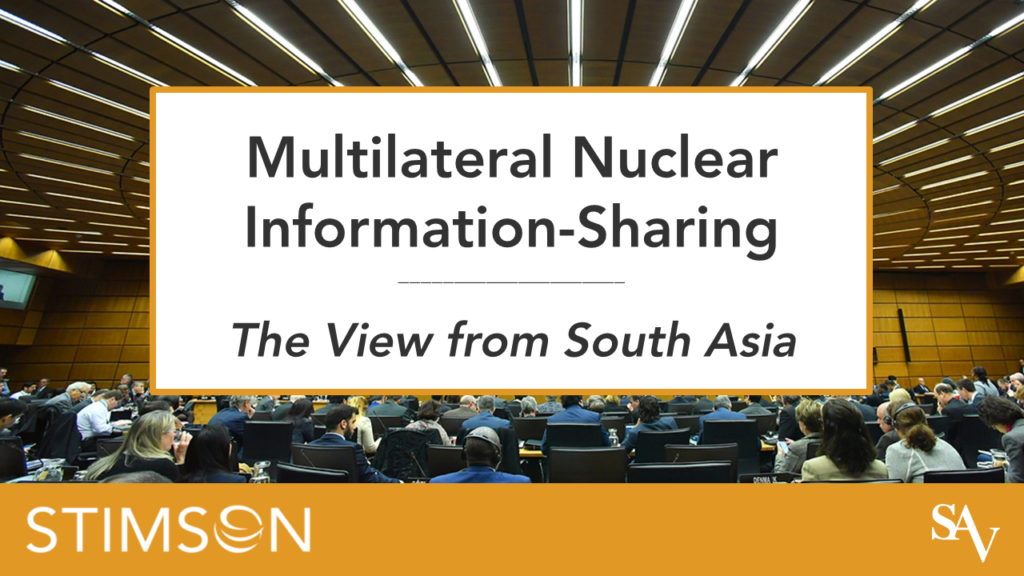Policy debates around participation in multilateral information-sharing mechanisms highlight fundamental tensions between safety, national security, and international security. Assuring other states that fissile materials are securely managed against the global threats of illicit proliferation and nuclear terrorism is a widely recognized priority. Yet, there are compelling security incentives for nuclear-armed states to keep information about their fissile material stocks secret. In South Asia, these tensions are further complicated by the unique histories of nuclear weapons in India and Pakistan and South Asian participation in global nuclear governance. Are voluntary information-sharing mechanisms regarding nuclear issues valuable?
In the series of essays that follow, Muhammad Faisal, Maimuna Ashraf, Hina Pandey, and Pooja Bhatt respond to a recent paper by nuclear scholars Sharon Squassoni and Cindy Vestergaard. The paper proposes that South Asian states voluntarily report on their civilian plutonium holdings through participation in an existing multilateral mechanism, the Guidelines for the Management of Plutonium or INFCIRC/549. Contributors assess whether and how participation in multilateral information sharing on nuclear materials can enhance and/or hamper Indian and Pakistani national interests.

